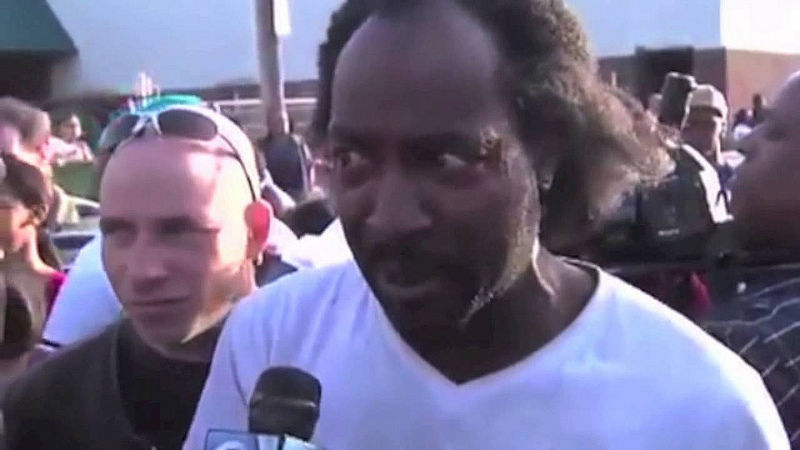
Charles Ramsey

Charles Ramsey
In the film Accidental Hero, a small time crook finds himself at the scene of a disaster, a plane crash, then he does something extraordinary, and walks away. In May 2013, Charles Ramsey found himself in a similar position, though in view of what he had stumbled onto, there was no way the media was ever going to allow him to just walk away.
It didn’t take long for someone to ditch the dirt on him, it turned out that he was a convicted wife-beater. And his rap sheet includes “drug abuse criminal trespassing, and receiving stolen property”.
Shucks, if a man can’t beat his own wife, who can he beat? Drug abuse is a victimless crime, and since the abolition of the Bloody Code, theft is no longer capital.
Some suggested too that what he did was no big thing, and it is true that another man, Angel Cordero, was instrumental in freeing Amanda Berry and the other captives, but both men could have walked away. Up until recently this is what would probably have happened in India.
Charles Ramsey in particular was an ordinary guy who did something extraordinary; he is also the classic proof that you should never judge a book by its cover. Thankfully, he is far from unique. Psychopath and serial killer Richard Ramirez who died in prison this year was brought to book by ordinary members of the public who chased him, pinned him to the ground and held him until the police arrived.
Age is no barrier to heroism. Earlier this month, News Shopper reported that Katy Haig – a girl of just 14 – had saved the life of a bus driver who was taken suddenly and severely ill.
While we can’t all be heroes, and it is true that none of us is indispensable, we can all change the world, usually only in a minuscule way if we change it for the better. Everyone who donated a dollar to the Philippines disaster funds has helped change if not the world then the life of someone in desperate need.
One group of people who are paid to make a difference are police officers. Often they come in for severe criticism, usually for good reason, but occasionally they go far beyond the call of duty, like this officer in January this year, who although not at work thought nothing of jumping onto the track at a Madrid station to rescue a woman who had fallen from the platform and was in serious danger.
Occasionally though, a police officer goes way, way beyond the call of duty, none more so than Ayyub Khalaf, who only this week paid the ultimate price. Although a father of two, he sacrificed himself to save the lives of pilgrims who had been targeted by a suicide bomber in the Iraqi capital. Although five people were killed and ten wounded, if he had not thrown his arms around the bomber taking the brunt of the explosion himself, dozens more would have been killed.
We can’t all show such heroism and selflessness, thankfully very few of us ever need to, but if the world is a slightly better place for the sacrifice of Ayyub Khalaf, how much better would it be if no one planted bombs or shot people or hacked off men’s heads in the first place? If we can’t all do good every day, perhaps we should strive to do a little less harm. That way we could all really change the world.
[The above op-ed was first published December 20, 2013; the original wasn’t archived.]
Back To Digital Journal Index